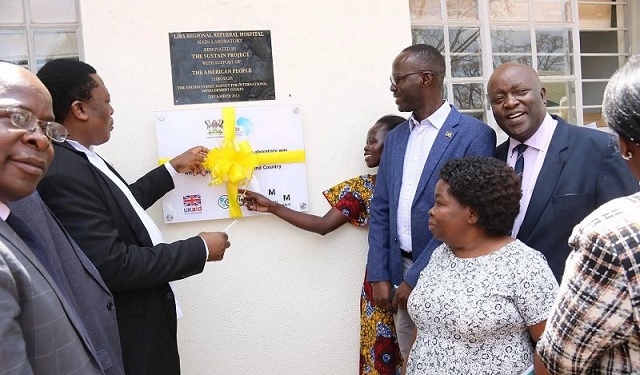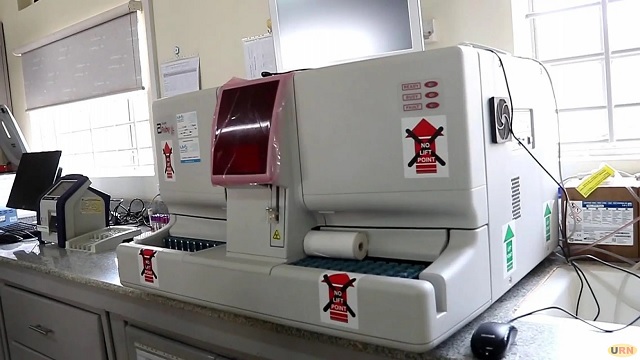
Lira, Uganda | THE INDEPENDENT | Lira Regional Referral Hospital has received its first microbiology laboratory and equipment to support the investigation of bacterial infections particularly those that have shown resistance to common antibiotics.
The hospital which receives over 1,000 outPatient attendances and 100 admissions on a daily basis has been referring its clients to Kampala for advanced tests because it only had the capacity for routine tests. With the new lab, the hospital will conduct liver and renal function tests, Prostate surface antigen, thyroid function tests, Histopathology and other specialized tests, resulting in a standardized and elevated level of care.
The laboratory was renovated and equipped by the Infectious Disease Institute with funding from the Fleming Fund Project at a cost of about 500 million Shillings. The main goal of the project is to avert the economic and health burden caused by microbial resistance commonly known as resistant infections.
Dr Nathan Onyachi, the hospital’s director says the new laboratory will save costs for both the hospital and its patients as well as control wastage.
Dr Charles Olaro, the Director of Curative Services at the Ministry of Health explained that a well-functioning medical laboratory provides the basis for correct diagnosis as well as timely and appropriate treatment which promotes better management of diseases and faster recoveries.

“We want that the lab should be supporting improved patient care and management for better patient outcomes in the core areas of microbiology but also diagnostic stewardship, supporting the control of anti-microbial resistance and generating facility evidence data on resistant bacteria and data for facility and national surveillance,” he added.
He tasked the hospital’s director together with his management team to ensure that the lab is functional so as to get to the demand side.
Similarly, Dr Susan Nabadda, the Commissioner of Laboratory and Radiology at the Ministry of Health advised the hospital administrators to budget for and ensure that the laboratory has all the reagents for it to be functional.
Dr Jonathan Maito, a project manager for the Fleming Fund Project explains that the project is not only focusing on human health but animals as well, saying at times resistant infections can be transmitted from animals to human beings, a reason why a Regional Veterinary Microbiology Laboratory has been set up in Arua.
Lira Regional Referral Hospital is one of the nine Regional Referral Hospitals in the country that is supported by the project to set up surveillance systems for bacterial and other infections that are resistant to the common drugs in use.
******
URN
 The Independent Uganda: You get the Truth we Pay the Price
The Independent Uganda: You get the Truth we Pay the Price




It is a prayer that the planning section has looked at the demands for generating Microbiology results
In detecting antimicrobial resistance; a person suffering from an infection ( fever quantitafied plus other features) gets a sample collected and transported to the Laboratory in a timely manner
The sample is screened for appropriateness and handled in a way to grow the germ causing infection
That germ is given a standard name
The germ is then challenged with available medicines to determine if it will die or survive
A meaningful report is sent back ro where the sample came from
There may be other actions to ensure the germ does not spread
A record of germ and its behaviour is kept
Such records are relied on to determine medicines to use ( on patients with similar infection) from the time patients arrive to when the respective results come back
So the number of Laboratory staff have to increase
The nature of training is important
The supply of material to hold samples should be consistent
All other materials should be available when needed
Then we shall celebrate these wonderful laboratories
Quantified temperature, and other features
Best generated when the story, verifying questions and examination are adequate
That screens very many that do not need the laboratory test, reducing cost
Not sure if “task shifting” will suffice for the time being